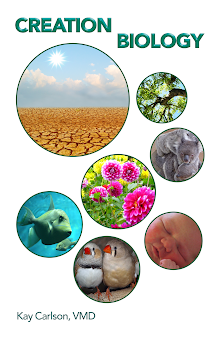I want to say just a little about the definition of "Natural Theology." It is meant in one way that we are able to determine some things about God by our human reason (in contrast to those things which come by revelation). But it also means that the Church can and has learned about God through His Creation.
Unfortunately, Catholics have lost a lot of appreciation of God through the very science that could lead them there. They are intimidated by the history of mistakes made toward Galileo by the Church and now by atheistic scientists and a culture of scientism. It is a shame, because, as I hope many of my blog posts have shown, biology is shining forth as a proof of His existence and genius. This is Natural Theology at its best, and it is being missed by many in places of influence in the Church and for that matter by much of the laity. (Although, I must say it is refreshing to see on the Internet that many do believe God made life and species directly.)
Catholic leadership is not, for the most part, learning from its mistakes. They should not be proclaiming evolution is true when they don't understand the science behind the reasoning both for and against. The results of the Galileo affair made the Church swing in an opposite and yet still wrong direction, where first they made decisions only on their interpretation of the Bible and they now agree with everything scientists say.
St. Thomas Aquinas is a revered medieval theologian. He constantly used the term “science” alongside of these words: faith, revelation, Scriptures and doctrine. Yet now many Christians insist that science and religion do not mix. Of course, much thought has changed over the centuries about what science and religion are. But two wrongs do not make a right. One wrong is ignorance of science. The second wrong is a denial that science just might be the study of physical things that were Created directly by supernatural means.
Actually, there are more than two “wrongs” going around.
Another is the mindset that scientists will eventually solve all mysteries on a
purely material basis. But many of us believe they will never know whether
there really are multiple universes, no matter how much they speculate or
assure us they have it all worked out. Our common sense can tell us that working
proteins do not just form randomly no matter how much time the Earth has been
here. We can get more technical by referring to the Summa Theologica of Thomas Aquinas, Part I, Question 2, where he explains our ability to know God as the Cause of what exists. It is just as reasonable to believe that “science” (as the culture now
defines it) will never work some things out as to think it will.
I pray someday the current situation changes once again, where we can go to truly learning about God's Creation and realize how wonderful He is. That is the Natural Theology that we should be doing.
I'd like to add a personal note. I have been spending much of my Internet time on Catholic Answers Forums. We just got an announcement that they are shutting down on Dec. 31, 2020. It was a shock at first, but a little bit of a relief after I realized how intense I was in reading it and thinking about all the arguments on it.
I guess it is the way of Christian evangelization to want to be energetic in one's efforts to show others the truth of Jesus Christ. And yet we are human and have daily limits, and sometimes, even often, we push past them without being aware of it. We have to step back sometimes, take our breath and re-evaluate.
I've been reading about Church history, the Fathers who shaped the doctrine, and other past theologians, such as St. Thomas Aquinas. It's a lot to learn to say the least, the equivalent of a never-ending run, and it always felt like I was behind. Now I think I will be able to pace myself a little better, both with studying and earthly matters I continue to contend with. I now feel I have more time to cope.
So, I don't plan to make up the CAF Internet time one-to-one with this blog. For now, as far as studying goes, I will try to read St. Thomas' Summa Theologica, over 1000 pages of difficult reading. And I will not hurry.





